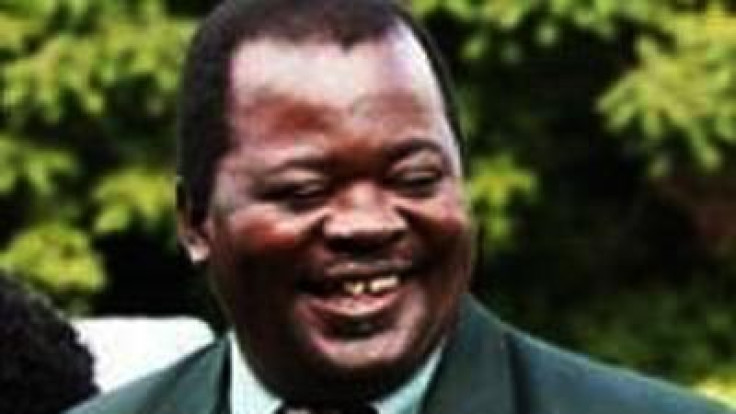Zimbabwe's Deputy Leader Backtracks on Claim of Secret Iran Uranium Deal

Zimbabwe's deputy prime minister has attempted to row back on his earlier claim that his country had a secret deal to supply Iran with the uranium it needs to develop nuclear weapons.
Gift Chimanikire had earlier told the Times that he had seen a written agreement with Tehran to export uranium, in defiance of international embargos.
"I have seen [a memorandum of understanding] to export uranium to the Iranians," Chimanikire said.
He alluded to similar deals for Zimbabwe's diamonds, which he said had been made without his knowledge. Only a handful of people at the top of Zimbabwe's government knew about the uranium deal, he said.
But hours later, Chimanikire told Bloomberg that he had been misquoted, and that although an agreement existed, it was only aimed at "future exploration".
"We have no capacity to handle uranium as a country, and besides we don't even know the quantity of uranium," he said.
Washington has warned that a deal between two nations would result in "serious ramifications".
Chimanikire is a member of the opposition Movement for Democratic Change party which was trounced by Robert Mugabe's Zanu PF in elections last month.
He said Zimbabwe struck the deal last year as it struggled to cope under the strain of Western sanctions.
"Mining is Zimbabwe's ticket," Chimanikire said.
Western companies are banned from trading with Zimbabwe's state-owned mining companies due to human rights abuses by the regime.
Iran is also subject to strict international sanctions over its suspected nuclear programme.
British security officials said they were aware that Iran was attempting to buy uranium from the Zimbabwean government, and had been involved in secret negotiations for more than two years.
Chimanikire said a Chinese company was surveying yellow-cake deposits in the northeast of the country, and that Mugabe's government had been seeking buyers.
China is also hungry for uranium. Both Iran and China are thought to have offered fuel, finance and construction projects in exchange for mining licences.
Analysts said it could be many years before the uranium reserves, estimated at up to 45,000 tonnes, are ready for export.
Mugabe, 89, prompted speculation of a deal in 2010 when he received Mahmoud Ahmadinejad, then Iran's president, in Zimbabwe, describing Tehran's quest for nuclear power as a "just cause".
© Copyright IBTimes 2024. All rights reserved.





